
Journal Menu
► ▼ Journal Menu-
- IJMS Home
- Aims & Scope
- Editorial Board
- Reviewer Board
- Topical Advisory Panel
- Instructions for Authors
- Special Issues
- Topics
- Sections & Collections
- Article Processing Charge
- Indexing & Archiving
- Most Cited & Viewed
- Journal Statistics
- Journal History
- Journal Awards
- Society Collaborations
- Conferences
- Editorial Office
Journal Browser
► ▼ Journal Browser-
arrow_forward_ios
Forthcoming issue
arrow_forward_ios Current issue - Vol. 26 (2025)
- Vol. 25 (2024)
- Vol. 24 (2023)
- Vol. 23 (2022)
- Vol. 22 (2021)
- Vol. 21 (2020)
- Vol. 20 (2019)
- Vol. 19 (2018)
- Vol. 18 (2017)
- Vol. 17 (2016)
- Vol. 16 (2015)
- Vol. 15 (2014)
- Vol. 14 (2013)
- Vol. 13 (2012)
- Vol. 12 (2011)
- Vol. 11 (2010)
- Vol. 10 (2009)
- Vol. 9 (2008)
- Vol. 8 (2007)
- Vol. 7 (2006)
- Vol. 6 (2005)
- Vol. 5 (2004)
- Vol. 4 (2003)
- Vol. 3 (2002)
- Vol. 2 (2001)
- Vol. 1 (2000)
Need Help?
Announcements
15 November 2024
Prof. Dr. A. Douglas Kinghorn Appointed Chair of the 2024 Tu Youyou Award Committee

We are honored to announce that Prof. Dr. A. Douglas Kinghorn will serve as the Chair of the 2024 Tu Youyou Award Committee.

Name: Prof. Dr. A. Douglas Kinghorn
Affiliation: College of Pharmacy, The Ohio State University, USA
Prof. Dr. Kinghorn is a leading expert in pharmacognosy and natural products research. He is recognized for his key contributions to discovering bioactive compounds from plants, especially in anticancer, cancer chemopreventive, and substances with a sweet taste and taste-modifying agents. His prolific contributions include over 590 peer-reviewed works and edited or co-edited 40 scientific volumes.
The 2024 Tu Youyou Award Committee, under Prof. Dr. Kinghorn's guidance, will focus on identifying innovative research in the fields of natural products chemistry and medicinal chemistry. The committee will aim to identify groundbreaking work with the potential to lead to significant advancements in these areas.
We are confident that, with Prof. Dr. Kinghorn at the helm, the 2024 Tu Youyou Award will continue to inspire excellence and innovation in the related fields.
About the Tu Youyou Award
Established in 2016, the Tu Youyou Award seeks to honor those who excel in the fields of natural products chemistry and medicinal chemistry. This award offers a total prize of CHF 100,000, which will be equally divided among the winners if there is more than one, with each recipient receiving an award medal.
The 2024 Tu Youyou Award remains open for nominations until 31 December 2024. We encourage all eligible candidates to participate in this prestigious recognition, as this award not only honors individual achievement but also encourages further scientific exchange, exploration and discovery in critical areas of medicine.
If you are interested in participating, please visit the Tu Youyou Award website for more information on the nomination requirements.
6 November 2024
Meet Us at the Plant & Animal Genome 32 Conference, 10–15 January 2025, San Diego, USA

Conference: Plant & Animal Genome 32 Conference
Organization: Scherago International
Date: 10–15 January 2025
Place: San Diego, CA, USA
MDPI journals will be attending the Plant & Animal Genome 32 Conference as exhibitors. This meeting will be held at the Town & Country Resort and Conference Center, San Diego, USA, from 10 to 15 January 2025.
The Plant & Animal Genome Conference (PAG) will bring together the leading genetic scientists and researchers involved in plant and animal research and related areas. With 62 countries typically represented, the Plant & Animal Genome Conference provides an established forum for the exchange of information internationally as well as in the USA. Approximately 39% of attendees travel to the PAG from outside the USA, making the conference a truly global event. Of the attendees, 73% checked “Plant” and 27% checked “Animal” as their areas of interest.
The following MDPI journals will be represented:
- Plants;
- Agronomy;
- Life;
- Epigenomes;
- Biochem;
- Current Issues in Molecular Biology (CIMB);
- International Journal of Molecular Sciences (IJMS);
- Animals;
- International Journal of Plant Biology (IJPB);
- Taxonomy;
- Crops;
- Agriculture;
- Journal of Zoological and Botanical Gardens (JZBG);
- Horticulturae;
- Genes;
- Grasses;
- Seeds.
5 November 2024
Join Us at “MDPI Open Access—An Author Training Program”, 14 November 2024, Nanyang Technological University, Singapore
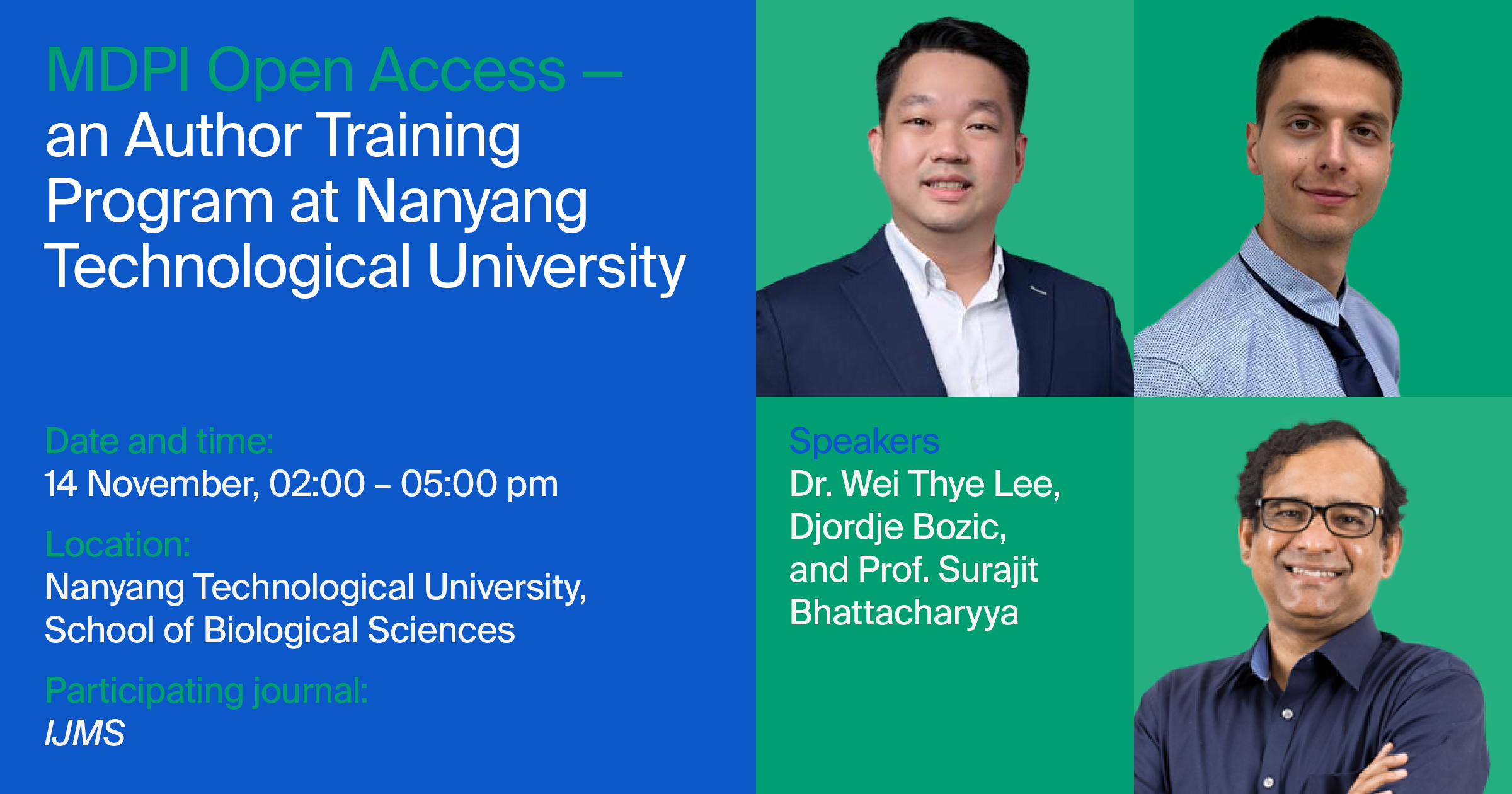
MDPI, in collaboration with Nanyang Technological University’s School of Biological Sciences and the Biology Graduate Student Club, is excited to host an insightful author training session focused on the essentials of open access publishing.
This comprehensive session will provide participants with a clear understanding of MDPI's publishing process, alongside effective writing techniques and research strategies for crafting scientific papers. Led by our experienced Academic Editors, attendees will receive tailored guidance designed for various author groups, equipping them with the necessary knowledge and tools required to navigate and excel in their publishing journeys.
Date: 14 November 2024
Time: 2:00–5:00 p.m.
Venue: Nanyang Technological University, School of Biological Sciences, Classroom 1
| Speaker | Program | Time |
| Registration | 1:30–2:00 p.m. | |
| Dr. Wei Thye Lee | Opening Address | 2:00–2:10 p.m. |
MDPI, Open Access Model, and Journal Introduction
|
2:10– 3:00 p.m. | |
| Writing Scientific Papers in English The session will begin with effective literature search strategies, offering foundational advice on the planning and structuring of work. Detailed recommendations for each paper section will be provided, along with examples to illustrate best practices. Research-Specific Content Authors will learn to identify research trends and hot topics while being introduced to essential research tools like VosViewer and Bibliometrix. The effective use of the Web of Science, journal indexing processes, and common bibliometric concepts will also be covered. |
||
| Q&A Session | 3:00–3:10 p.m. | |
| Mr. Djordje Bozic | Rejection Reasons for Pre-Checks Authors will be introduced to the MDPI editorial process, as well as gain insights on the Academic Editors’ decisions, common rejection reasons, and strategies to avoid issues which may lead to manuscript rejection. How to Respond to Peer Reviewers Authors will be shown how to effectively respond to major and minor revision comments from reviewers by making the necessary changes to their manuscripts. This process ensures that feedback is appropriately addressed to improve the chances of a successful publication. |
3:10–4:00 p.m. |
| Q&A Session | 4:00–4:10 p.m. | |
| Associate Professor Surajit Bhattacharyya |
Experience Sharing | 4:10–4:30 p.m. |
| Closing of Program | 4:30–5:00 p.m. |
Chair:
 Dr. Surajit Bhattacharyya Associate Professor School of Biological Sciences |
Prof. Surajit Bhattacharyya received his Ph.D. in Molecular Biophysics from the Indian Institute of Science, Bangalore, India. He then carried out post-doctoral research at the National Research Council (NRC) of Canada, Montreal, in Biomolecular NMR and was subsequently appointed as a staff scientist of the NRC. Prof Bhattacharyya then joined Nanyang Technological University’s School of Biological Sciences as an Assistant Professor and was promoted with tenure to Associate Professor thereafter. His laboratory is engaged in cutting-edge and diverse research, including the following: (1) Molecular mechanisms of cell adhesion proteins, integrins, and development of therapeutics against cancer, inflammation, and blood-related diseases; (2) Host defense antimicrobial peptides and proteins with the aim to design new antimicrobials and antiendotoxic molecules; and (3) the de novo design of functional synthetic proteins. Prof. Bhattacharyya’s research has thus far yielded over 95 publications in leading journals. In addition, he serves as an Academic Editor for multiple journals including PLOS One, Scientific Reports, and the International Journal of Molecular Sciences (IJMS). Prof. Bhattacharyya is a Fellow of the Royal Society of Chemistry (FRSC) and an Overseas Fellow of the Royal Society of Medicine. |
MDPI Speakers:
 Dr. Wei Thye Lee Institutional Partnerships Manager MDPI Singapore |
Dr. Wei Thye Lee earned his Ph.D. from the National University of Singapore (NUS) with research on experimental therapeutics in pre-clinical models of neurodegenerative diseases. He has published in many Scopus- and Web of Science (WOS)-indexed journals throughout his academic career. With MDPI, he has served in many editorial roles such as Assistant Editor, Publishing Specialist, and Special Issue Editor. He is currently the Institutional Partnership Manager for MDPI, liaising with institutions in the Asia Pacific (APAC). |
 Mr. Djordje Bozic Section Managing Editor MDPI Serbia |
Mr. Djordje Bozic joined MDPI in November 2020 as an Assistant Editor for the Applied Sciences Journal. He is currently serving as a Section Managing Editor and Journal Relations Specialist for the MDPI Journals Applied Sciences, Oral, ASI, Gastronomy, and Applied Nano. He received his Bachelor’s degree in Environmental Engineering from the Faculty of Mining and Geology at the University of Belgrade, Serbia, where he also completed his Master’s degree in the same field. |
Organizer: 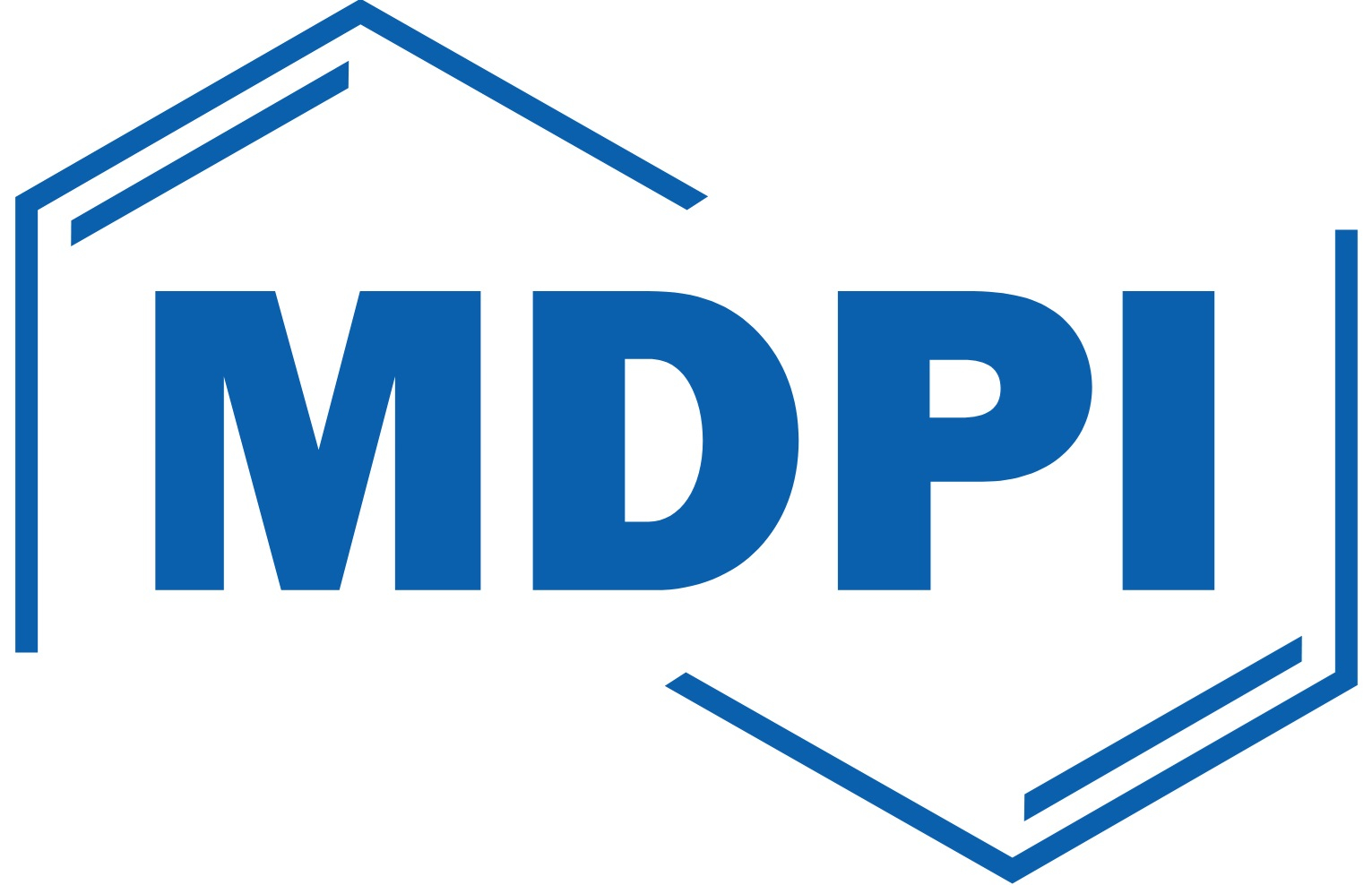  |
5 November 2024
MDPI INSIGHTS: The CEO's Letter #17 - OA Week, Basel Open Day, Beijing Graphene Forum

Welcome to the MDPI Insights: The CEO's Letter.
In these monthly letters, I will showcase two key aspects of our work at MDPI: our commitment to empowering researchers and our determination to facilitating open scientific exchange.
Opening Thoughts

Open Access Week: Forging the Future of Open Access through Global Reach and Collaboration
From 21 to 27 October, we celebrated International Open Access Week (OAW), highlighting the importance of making research accessible to everyone. This campaign reinforced our commitment to advancing open access (OA) and showcased how we are helping research communities worldwide adopt OA as their standard.
“OA publishing is now a cornerstone of global research”
Throughout the week, we featured MDPI’s efforts to support quality open research through blog posts on topics such as how Research Integrity Promotes OA Practices, our Preprints.org platform, and supporting societies with different OA models. These initiatives capture our commitment to making research more inclusive and accessible to all.
OA publishing is now a cornerstone of global research, with more researchers choosing OA over traditional paywalled models, and embracing new, community-driven models.
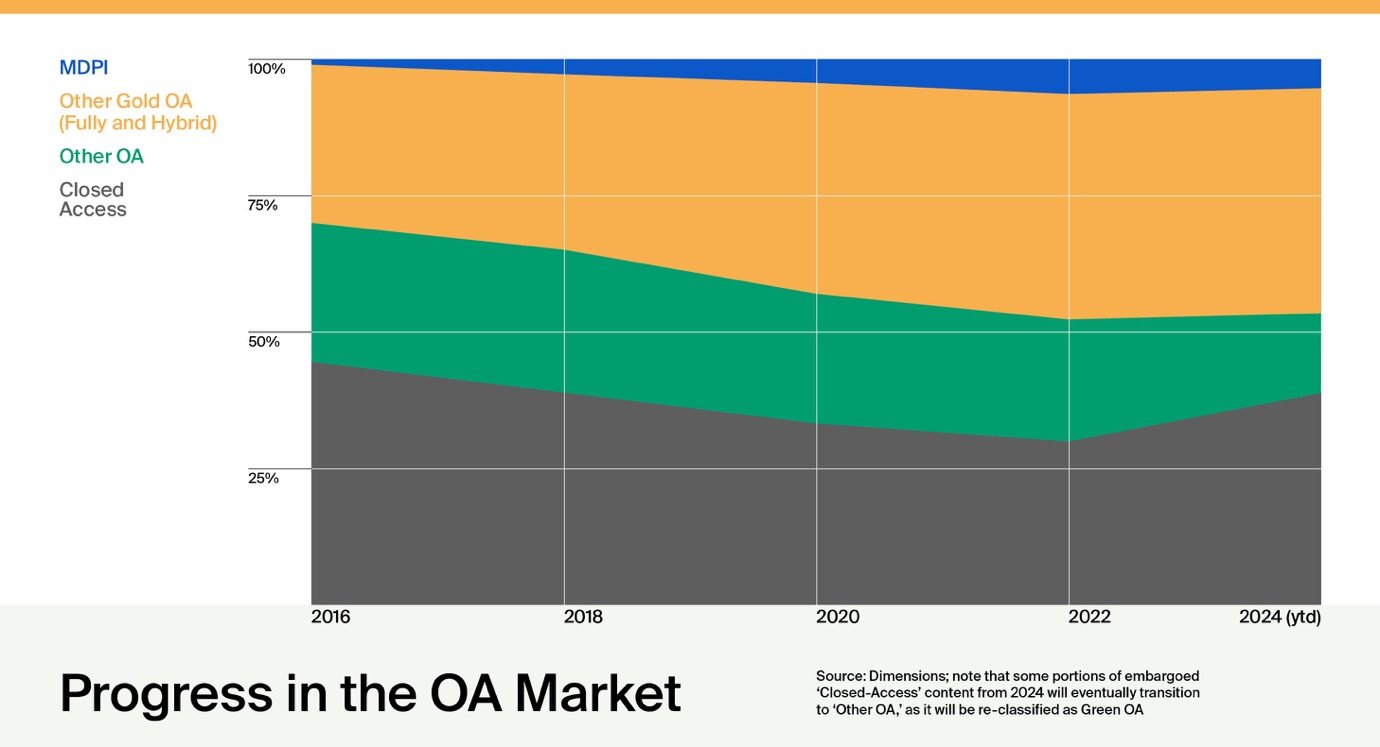
Benefits of Open Access and Open Research
- Accelerated Discoveries: OA speeds up scientific progress by allowing immediate access to findings, enabling researchers to build on each other’s work faster.
- Community-Led Innovation: Open research empowers communities to manage their own platforms, creating collaboration and shared knowledge.
- Increased Visibility: OA broadens the reach of your research, leading to greater recognition, collaboration, and impact.
- Cross-Disciplinary Connections: By removing financial and geographical barriers, OA unites diverse fields, sparking innovation across disciplines.

MDPI Singapore Celebrates Open Access Week
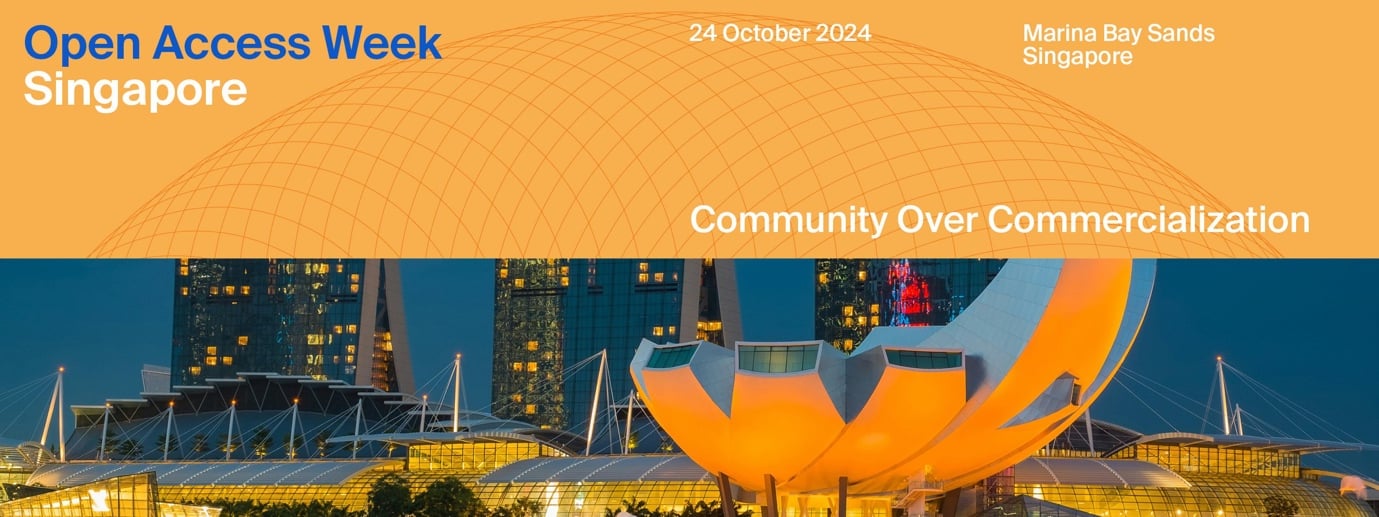
MDPI Singapore also hosted its first-ever OAW event at the Marina Bay Sands Convention Centre, bringing together academics, researchers, and students to discuss the future of open scholarship. Conversations focused on the potential of new publishing models, alternative funding strategies, and the importance of communicating research to wider audiences.
As OA evolves, MDPI remains a committed partner in advancing open science and creating a transparent, inclusive research environment. For a full recap of the week’s highlights and resources, visit our campaign page.

Impactful Research

MDPI Connection to Nobel-Winning Protein Research
David Baker, an American biochemist, and Demis Hassabis and John M. Jumper, two scientists from Google DeepMind, have been awarded the 2024 Nobel Prize in Chemistry for their groundbreaking advancements in better understanding the structure of proteins, the molecular engines of life’s processes.
One half of the prize was awarded to Professor David Baker from the University of Washington for his development of revolutionary protein design software enabling the creation of novel proteins for vaccines, nanomaterials, and sensors. Prof. Baker co-authored a 2016 paper in MDPI’s Toxins journal on protein-based therapeutics.
Meanwhile, DeepMind’s Demis Hassabis and John M. Jumper received recognition for AlphaFold, the AI model that predicts protein structures from amino acid sequences, fulfilling a long-held scientific dream.
“We congratulate this year’s Nobel laureates for their groundbreaking contributions to the study of life”
Nobel Prize Laureates Entrust MDPI with Their Research
As at October 2024, 45 Nobel laureates had contributed to more than 115 articles across
35 MDPI journals. The privilege of hosting the research of such contributors, who significantly influence the open access movement, resonates deeply with our editorial teams.
We are proud to list the names of Pierre Agostini, Hiroshi Amano, Werner Arber, Aaron Ciechanover, Robert H. Grubbs, Oliver Hart, Gerard ‘t Hooft, Michael Houghton, Harald zur Hausen, Katalin Karikó, Jean-Marie Lehn, Gérard Mourou, Ferid Murad, Shuji Nakamura, William Nordhaus, Kostya S. Novoselov, Giorgio Parisi, Charles M. Rice, Alvin E. Roth, Donna Strickland, K. Barry Sharpless, George F. Smoot, Anne L’Huillier, Drew Weissman, Kurt Wüthrich, Ada Yonath, Tomas Lindahl, Thomas C. Südhof, Stanley B. Prusiner, Roger Kornberg, Robert F. Engle, Richard J. Roberts, Ōmura Satoshi, Kenneth J. Arrow, John B. Goodenough, Jennifer Doudna, Hamilton Othanel Smith, Eric R. Kandel, Carlo Rubbia, Bernard Feringa, Barry J. Marshall, Anthony J. Leggett, Andrew Victor Schally, and David Baker.
Notable MRNA Published in Cells
On 7 October 2024, the 2024 Nobel Prize in Physiology or Medicine was jointly awarded to Victor Ambros and Gary Ruvkun for the discovery of microRNA and its role in post-transcriptional gene regulation.
MicroRNAs are proving to be fundamentally important for how organisms develop and function. Some interesting papers about microRNA research are published in the MDPI journal Cells. I invite you browse through the notable papers related to microRNA research in Cells.
Inside MDPI
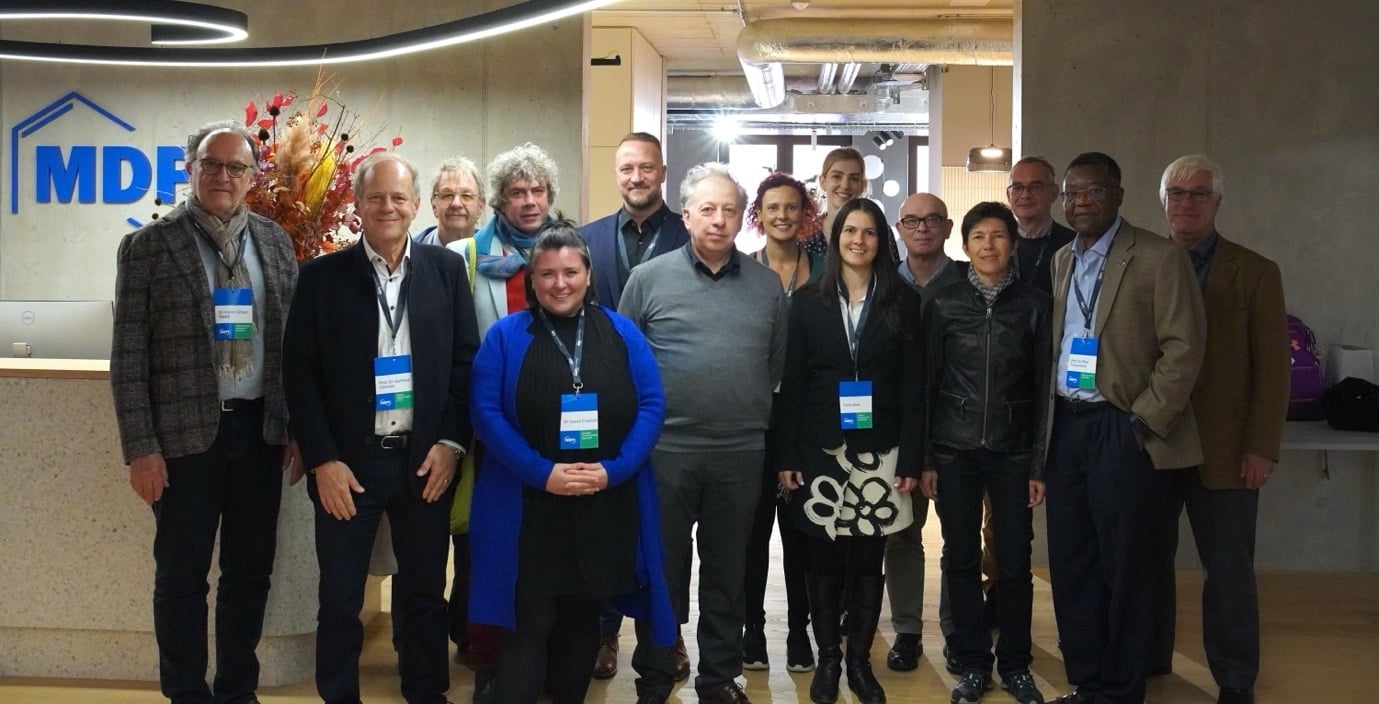
Basel Open Day
On 21 October, we held the Basel Open Day at our headquarters, welcoming a group of journal Editors-in-Chief (EiC) and Editorial Board Members (EBMs) for a full-day workshop. The event featured presentations and discussions on MDPI’s latest editorial updates, data integrity policies, society collaborations, and local market insights.
The following MDPI journals were represented during the visit: Physics, Journal of Personalized Medicine (JPM), Sci, Remote Sensing, Animals, Cells, Buildings, Histories, Sensors, and International Journal of Environmental Research and Public Health (IJERPH).
This was a great opportunity to showcase our new office space while gathering feedback from leading journal stakeholders. To get everyone on the same page, we took 60 minutes for round-table introductions, which helped set a collaborative tone and ground us in MDPI’s mission of disseminating open science.
“This was a great opportunity to gather feedback from leading journal stakeholders”
The general feedback from the day highlighted positive developments around our editorial and ethics policies, as well as areas for improvement, including flexibility regarding reviewer deadlines. There was a genuine appreciation and push for our ongoing efforts to share more about MDPI, including company updates and promoting high-quality research through our blog, announcements, and social media channels, which we have been growing and expanding.
Our Basel Open Day was a positive experience, bringing together key journal stakeholders and gathering insights to guide MDPI’s continued engagement with the academic community. We look forward to hosting future events of this kind and welcoming more scholars to our headquarters in Basel, Switzerland.
Coming Together for Science

ncRNA 2024 Conference in Basel
I am pleased to share that we held Non-coding RNA World 2024: Exploring Mechanisms, Designing Medicines (ICM 2024) in Basel, Switzerland this past 7–9 October.
The three-day event attracted just over 100 attendees, including two Chairs, 10 invited speakers and two keynotes from Prof. Mauro Giacca and Prof. Ling-Ling Chen. Of the presentations on site, there were 35 posters and 44 oral presentations.
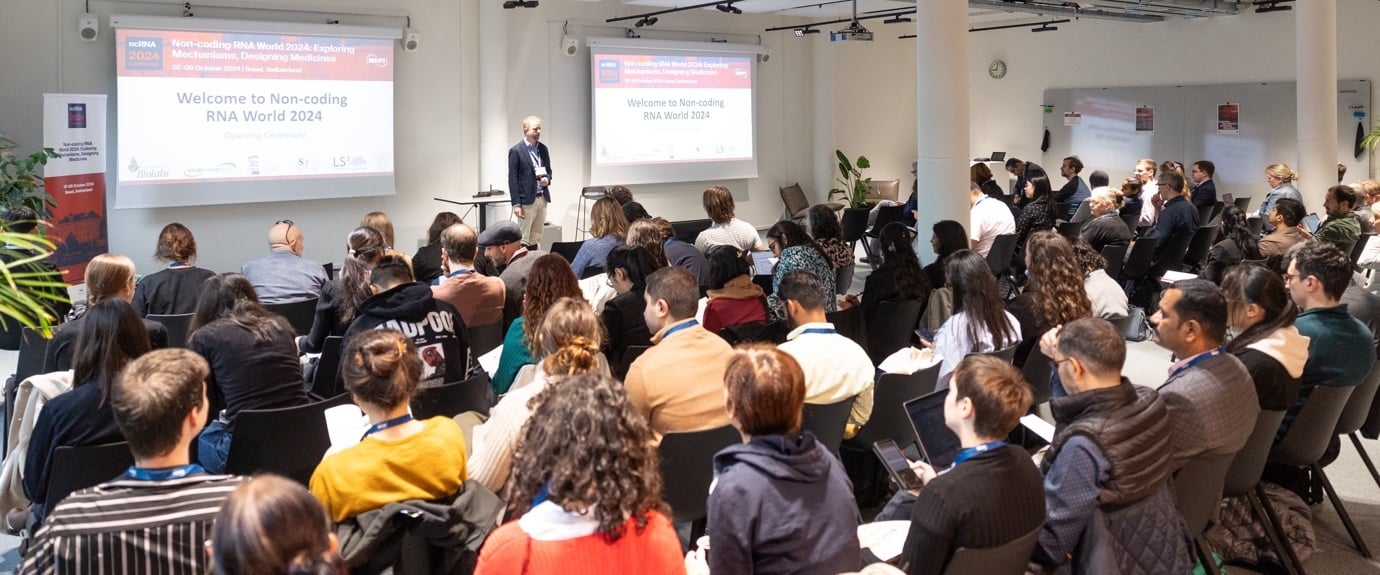
The overall feedback was positive, with people enjoying the intimate event and the unique activities offered, including a guided tour around Basel’s Old Town (a must-see for anyone visiting the city) and a memorable conference dinner.

It was cool to see the winners of the 2024 Nobel Prize in Physiology or Medicine announced during the conference days. This was exciting for attendees, as the winners discovered a new class of RNA molecules (miRNAs). As one invited speaker put it, “It's exciting to be among fellows when something that important for the field is announced.”
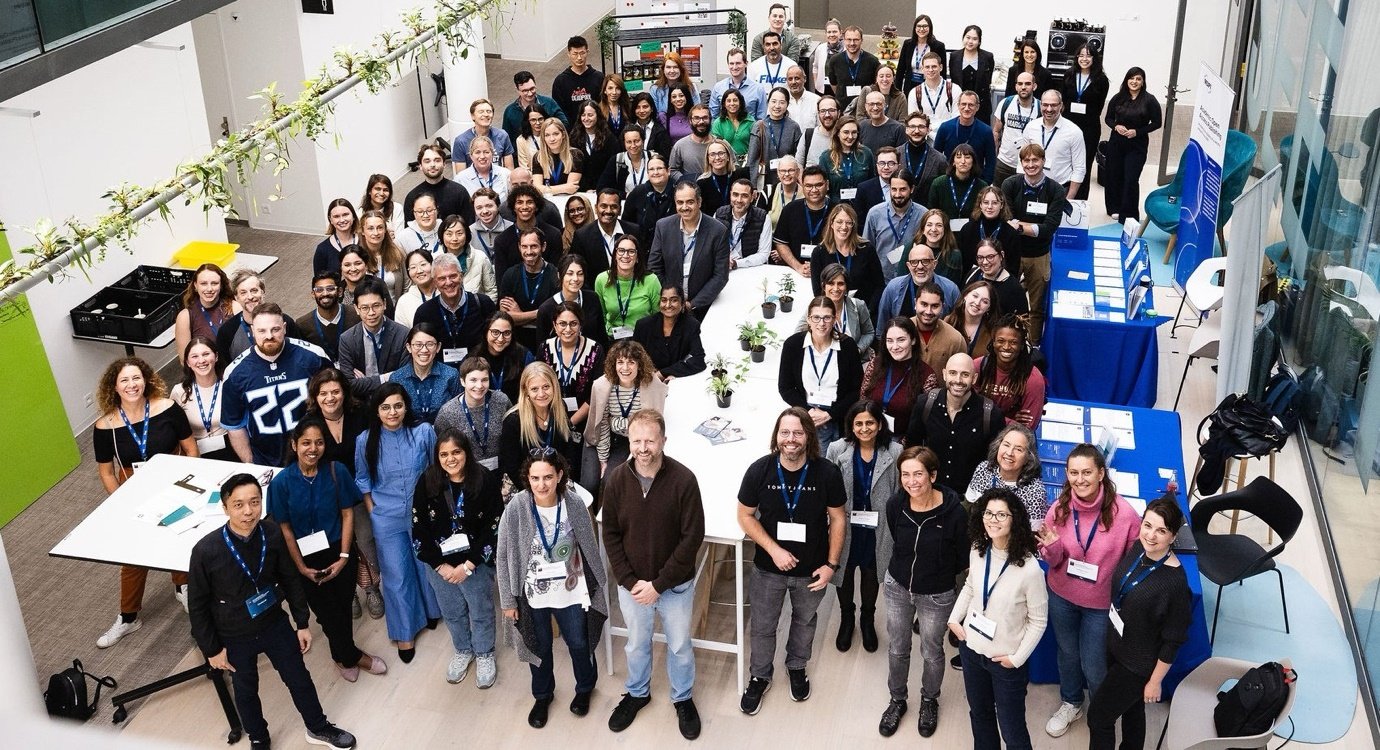
“It's exciting to be among fellows when something that important for the field is announced”
Every attendee receives a conference survey, and I’m always pleased to see a high percentage of ‘Very Satisfied’ responses when asked about ‘treatment from conference personnel’. Kudos to our conference team for meeting our attendees’ needs. These events are a great opportunity for us to reach new audiences, as 92% of the respondents had never been to an MDPI conference, so I am thrilled to see us connecting with a new demographic of your researchers in the RNA field.
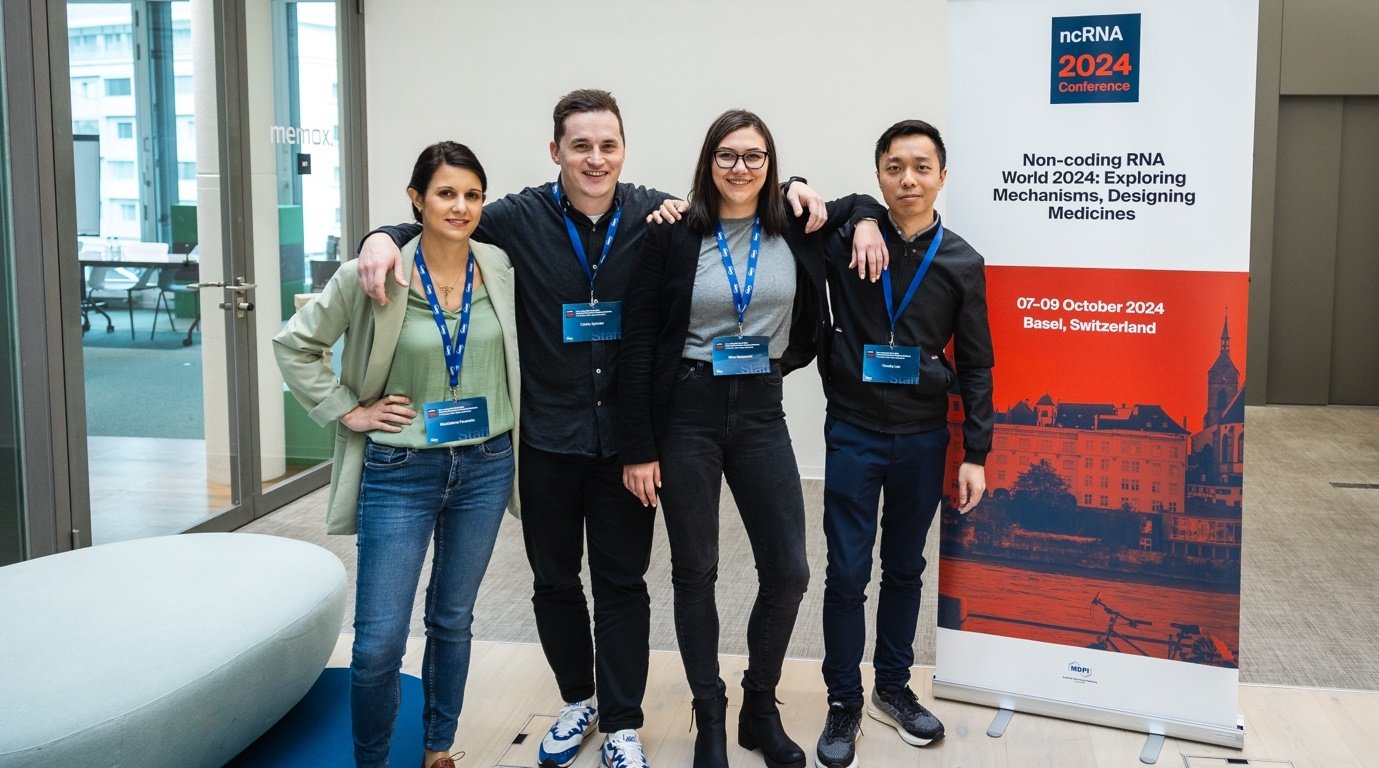
A special thank-you to our partnering societies The Epigenetics Society, The French Society of Genetics, LS2 / USGEB (Union of Swiss Societies for Experimental Biology), and The RNA Biology Group, as well as to our sponsors New England Biolabs and Arraystar for their support of the ncRNA 2024 conference. I am also pleased to report that we presented two awards, including the Best Presentation Award and two Best Poster Award, recognizing the contributions of our participants.
Upcoming In-Person Event
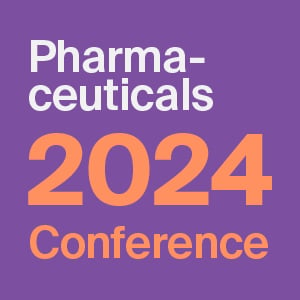
27–29 November 2024
Pharmaceuticals 2024 – Recent Advances in Pharmaceutical Sciences Towards a Healthy Life
Location: Barcelona, Spain
The discovery of new molecules, their properties, and actions to enhance human health and quality of life.
Find more upcoming MDPI events here.
Closing Thoughts

Beijing Graphene Forum 2024
I am pleased to share that we had a successful time at the Beijing Graphene Forum 2024, which drew around 1,000 attendees, including Konstantin Novoselov (2015 Nobel Prize in Physics) and other high-profile scholars in materials science and chemistry. It was a great opportunity to present MDPI on the big stage, with university presidents from institutions such as Peking University also in attendance.
I had the honour of awarding Prof. Zhongfan Liu, Chairman of the Chemical Science Committee, with a medal and presenting certificates to the members of the Chemical Science Committee; this is an important initiative to help expand MDPI’s journals and influence in China. These are highly respected scholars, and we enjoyed connecting with them over lunch as well.
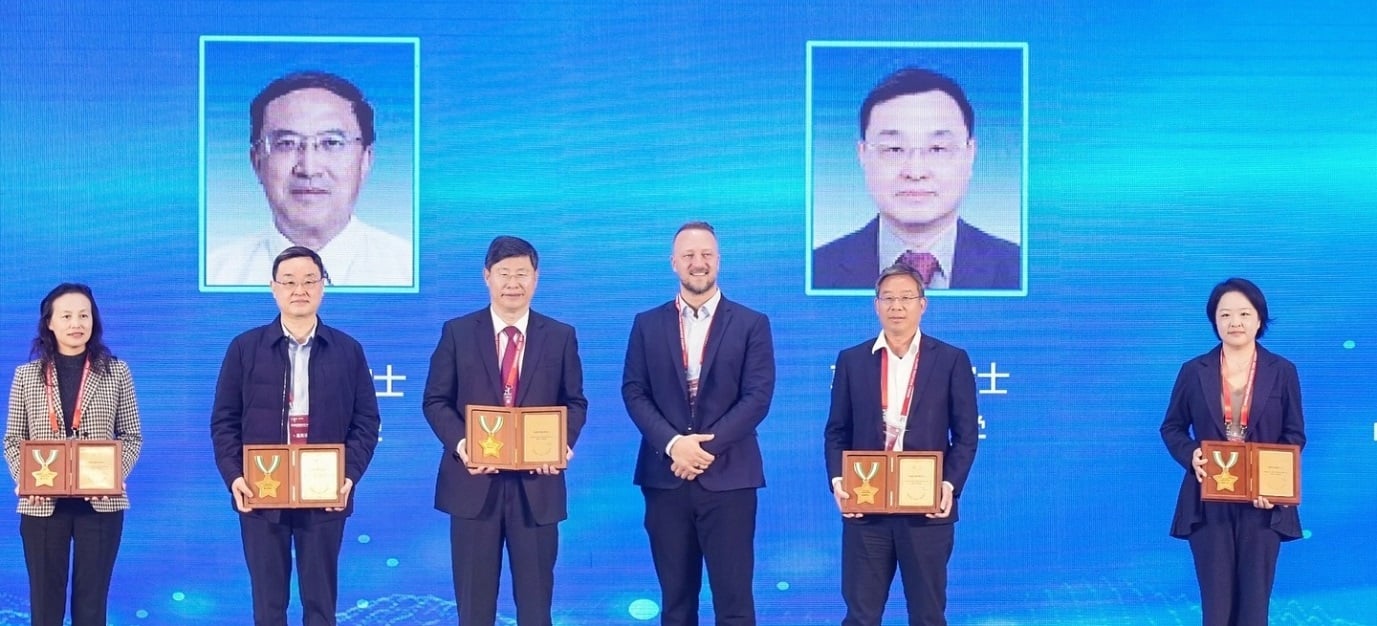
“This is an important initiative to help expand MDPI’s journals and influence in China”
I also had the chance to speak about MDPI and open access, giving a five-minute speech during the opening ceremony and a 20-minute presentation at the close. MDPI hosted a sub-forum where both academic scholars and MDPI members shared insights, and we engaged with attendees at our MDPI booth.
This was a great opportunity to spotlight MDPI as the main publishing partner for the event, and I was proud to represent us on stage. We also met with scholars to discuss topics such as their publishing needs and institutional policies, open access, impact journals, and IOAP.
Chief Executive Officer
MDPI AG
16 October 2024
MDPI's Newly Launched Journals in September 2024
Five new journals covering a diverse range of subjects launched their inaugural issue in September 2024. Like other journals in MDPI’s portfolio, these journals are dedicated to sharing the latest research through open access, reflecting our commitment to making knowledge accessible to all.
We extend our sincere gratitude to the Editorial Board Members for their dedication to the launch and development of our new journals. Each journal will ensure its high-quality output via excellent editorial and rigorous peer-review processes so that the published articles achieve significant impact and broad visibility.
We invite you to explore and learn more about these new journals below.
| Journal | Founding Editor-in-Chief | Journal Topics (Selected) |
| Prof. Dr. Nejat Düzgüneş, University of the Pacific, USA | Editorial | view inaugural issue | biological therapy and stem-cell therapy; drug therapy; chemotherapy; radiation and other nonsurgical therapeutic strategies | view journal scope | submit an article | |
| Prof. Dr. Magda Tsolaki, Greek Federation of Alzheimer’s Disease, Greece; Aristotle University of Thessaloniki, Greece | Editorial | view inaugural issue | surgical/procedural complications; complications; perioperative adverse events; postoperative adverse events | view journal scope | submit an article | |
| Prof. Dr. Steven R. Fassnacht, Colorado State University, USA; Cooperative Institute for Research in the Atmosphere, USA | Editorial | view inaugural issue | ice as a mineral; atmospheric ice; sea ice; freshwater ice; ice sheets; ice caps and ice shelves | view journal scope | submit an article | |
| Dr. Francisco Epelde, Hospital Universitari Parc Tauli, Spain; University Autonoma of Barcelona, Spain | Editorial | view inaugural issue | hospital management; hospital facilities; hospital services; hospital risk management; health law | view journal scope | submit an article | |
| Prof. Dr. Nicola Ferri, University of Padova, Italy | Editorial | view inaugural issue | lipids in cells and whole organisms; lipid structure and function; lipid products and processes; dietary lipids and nutrition | view journal scope | submit an article |
We wish to thank everyone who has supported the development of open access publishing. You are welcome to send an application here or contact the New Journal Committee (newjournal-committee@mdpi.com) if you would like to create more new journals.
15 October 2024
Meet Us at the 47th Annual Meeting of the Molecular Biology Society of Japan, 26–29 November 2024, Fukuoka, Japan
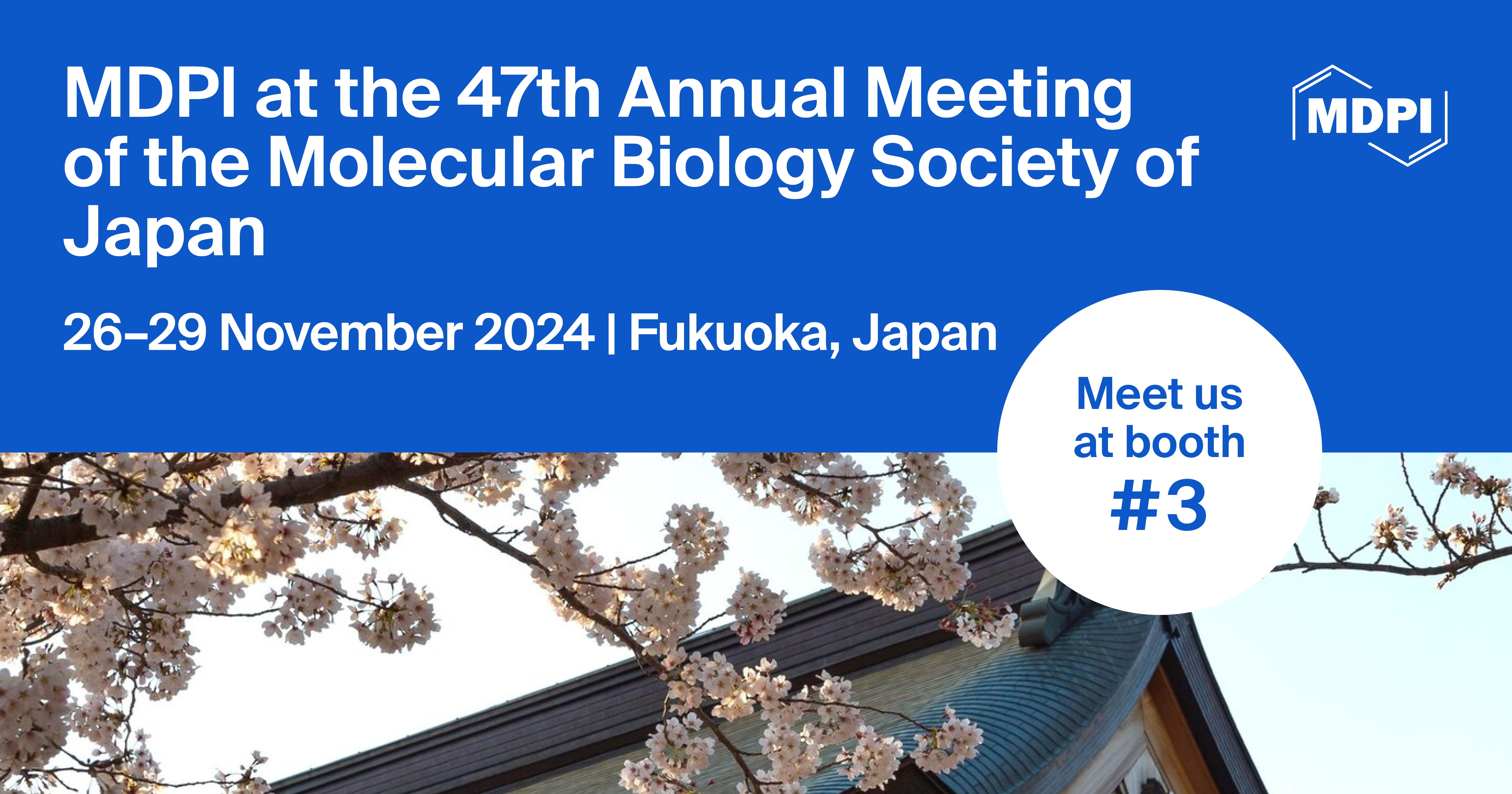
Conference: The 47th Annual Meeting of the Molecular Biology Society of Japan
Date: 26–29 November 2024
Location: Fukuoka, Japan
MDPI will attend the 47th Annual Meeting of the Molecular Biology Society of Japan which will be held from 26 to 29 November 2024 in Fukuoka, Japan. This is an annual conference organized by the Molecular Biology Society of Japan covering themes such as Molecular, Cell, Development and Regeneration, Animal and Plant Physiology, and Diseases.
The following MDPI journals will be represented at the conference:
If you plan on attending this conference, please feel free to stop by our booth and start a conversation with us. Our delegates look forward to meeting you in person and answering any questions that you may have. For more information about the conference, please visit: https://www.aeplan.jp/mbsj2024.
15 October 2024
Meet Us at the Third ASBMB-BSC Symposium on the Interplay Between Epigenetic Regulation and Genome Integrity, 21–25 October 2024, Wuhan, China

The third ASBMB-BSC Symposium on the Interplay between Epigenetic Regulation and Genome Integrity will be held from 21 to 25 October 2024, in Wuhan, China. The conference is co-organized by the Biophysics Society of China (BSC) and the American Society for Biochemistry and Molecular Biology (ASBMB).
Topics include the following:
- Epigenetic regulation of genome replication;
- Dynamic epigenetic alterations maintaining genome stability;
- Chromatin-based epigenetic inheritance;
- The role of epigenetic alterations in cancer and aging.
The following MDPI journals will be represented at the conference:
- CIMB;
- Genes;
- IJMS;
- Biomedicines;
- Epigenomes;
- JDB.
If you are planning to attend this conference, please feel free to start an online conversation with us. Our delegates look forward to meeting you in person at our booth #9 and answering any questions that you may have. For more information about the conference, please click the following link: https://www.bsc.org.cn/bsc-asbmb-epigenetics/.
11 October 2024
Meet Us at the Chinese Society of Biochemistry and Molecular Biology 2024 National Academic Conference, 24–27 October 2024, Changsha, China

We warmly invite you to attend the Chinese Society of Biochemistry and Molecular Biology 2024 National Academic Conference. In order to promote the exchange of knowledge and collaboration among experts in the field of biochemistry and molecular biology in China, the 2024 National Academic Conference of the Chinese Society of Biochemistry and Molecular Biology will be held in Changsha, Hunan, from 24 to 27 October 2024. The theme of this conference is “Biochemistry in Transformation”.
Since 2018, the society has held a national academic conference every year to promote academic exchange through conference reports, special reports, forums for young scientists, and poster presentations, with a conference scale of more than 2,000 people.
For more information about the conference, please visit the following link: https://www.csbmb.org.cn/2024/index.html.
4 October 2024
MDPI INSIGHTS: The CEO's Letter #16 - UNGA79 Science Summit, OASPA, Peer Review Week

Welcome to the MDPI Insights: The CEO's Letter.
In these monthly letters, I will showcase two key aspects of our work at MDPI: our commitment to empowering researchers and our determination to facilitating open scientific exchange.
Opening Thoughts

MDPI Joins the Science Summit at UNGA79 (23–27 September 2024, New York)
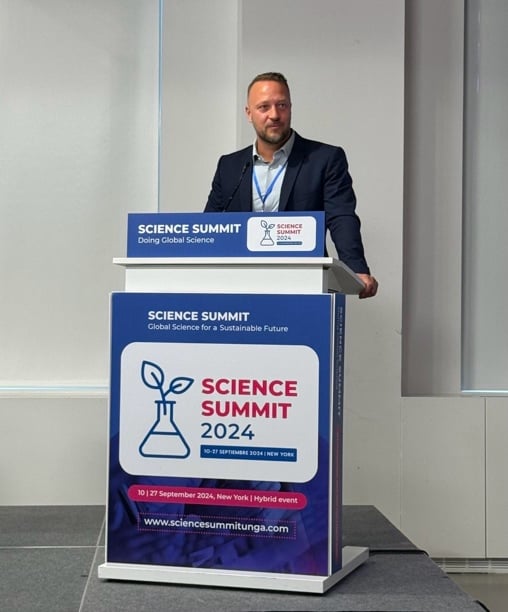
On Friday 27 September, I had the privilege of giving the opening talk at the “Youth at the Science Summit” panel during the Science Summit conference, held in New York at the 79th session of the United Nations General Assembly (UNGA). Together, we discussed the future of science, publishing, innovation, and sustainable development.
It was a great opportunity to learn from our young leaders, whose voices must be included in the conversation as science shapes the future of artificial intelligence, climate mitigation, healthcare, technology, and more. This was also a powerful reminder of how essential global collaboration is in solving the major challenges we face. I left inspired by the dedication of these young researchers to making the world a better place!
Today’s youth are not just the leaders of tomorrow – they are already leading the change today.
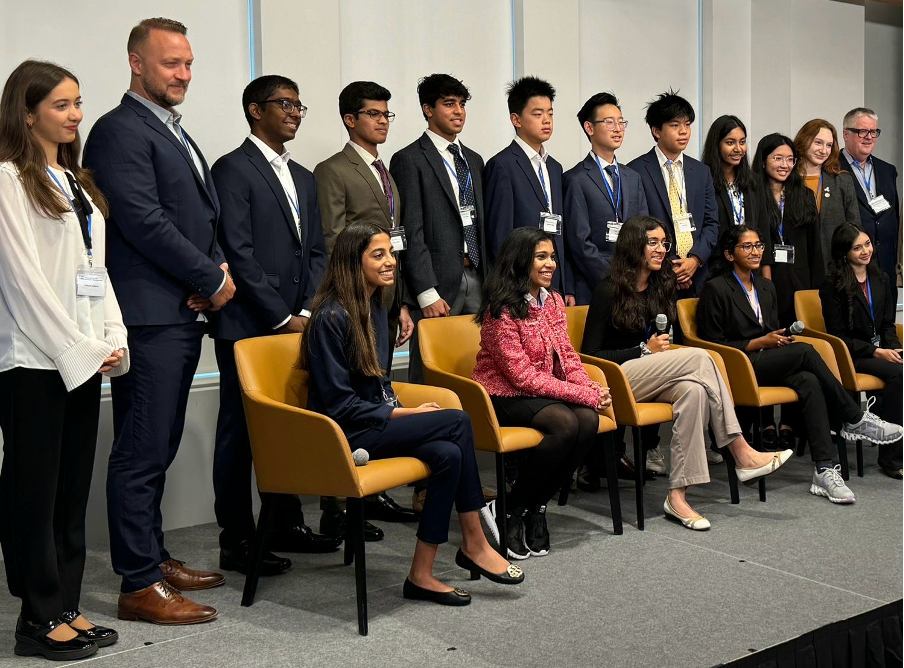
Stefan Tochev (second from left) at the UNGA Science Summit 2024: “A great opportunity to learn from our young leaders.”
MDPI Supports the Future Generation of Scientists
This aligns with MDPI’s mission to support the next generation of scientists and early-career researchers by recognizing their achievements through our various MDPI awards, including the Young Investigator Awards, Best PhD Thesis Awards, Travel Awards, and more.
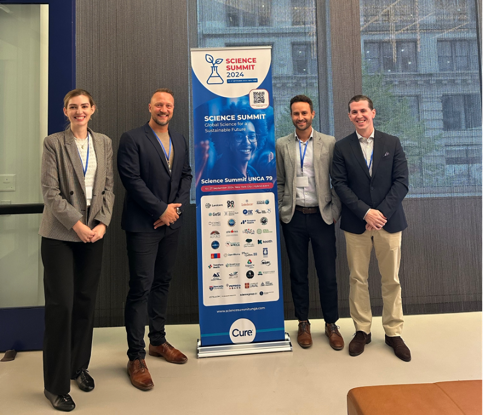
Our presence at this global event showed our commitment to advancing Open Science as a key driver for sustainable development. As a leading Open Access (OA) publisher, MDPI’s role at the summit was to emphasize the critical importance of democratizing scientific knowledge, making it accessible to all, and promoting global collaboration.
Through OA publishing, we aim to address pressing global challenges such as climate change, public health, and inequality, in line with the United Nations Sustainable Development Goals (SDGs).
“We aim to address pressing global challenges”
MDPI and the SDGs
In 2020, the SDG Publishers Compact was launched to accelerate implementation of the SDGs by promoting content that informs, develops, and inspires action. MDPI joined this initiative in 2021 and subsequently launched the MDPI SDG Hub in 2022, offering free access to recent research within the scope of each of the 17 SDGs.
During the summit, we highlighted the connection between Open Science and the SDG Publishers Compact, supporting the core objective to “Leave No One Behind” (LNOB). The transformative promise of the SDGs relies heavily on the Open Access model, which serves as a fundamental enabler of Open Science. We advocate for the wider adoption of Open Science practices in order to achieve the SDGs by 2030.
Impactful Research
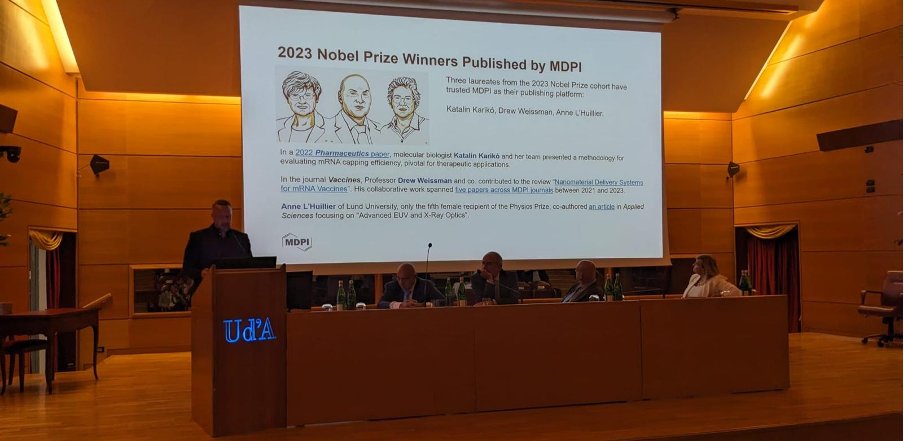
Presenting at the 1st International Conference of Environmental Medicine
In September, MDPI and our journals IJERPH and Diseases sponsored and participated in the 1st International Conference of Environmental Medicine: Environmental Threats to Human Health: From Genetics to Epigenetics, held in Chieti, Italy.
The conference was organized in collaboration with various societies, including the Italian Society of Environmental Medicine (SIMA), one of more than 160 societies partnering MDPI journals.
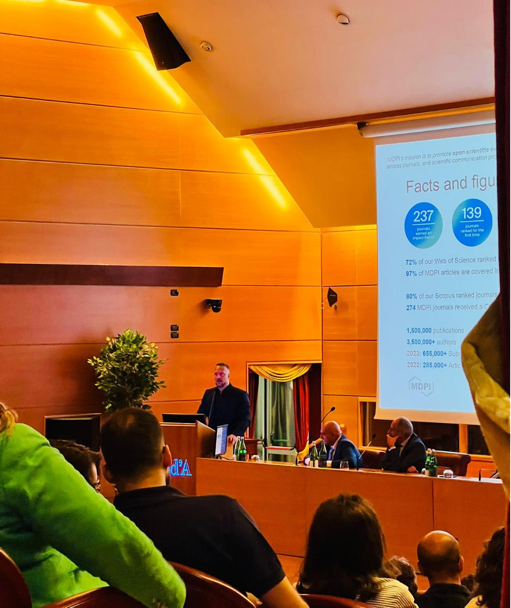
The conference brought together influential figures from the Italian scholarly community, such as Antonio Felice Uricchio (President of the National Agency for University Research Assessment [ANVUR]), Alessandro Miani (President of SIMA), and Liborio Stuppia (Director of ‘Gabriele d’Annunzio’ University of Chieti-Pescara), among others.
MDPI was the sole publishing sponsor of the conference, at which I had the opportunity to present on behalf of the company. I provided an overview of MDPI, covering key facts and figures, the peer-review process, our strong collaboration with the Italian market, and insights into Nobel Prize winners who have published with MDPI, ahead of Sir Richard Roberts’ Nobel lecture.
“As at September 2024, 44 Nobel laureates have contributed to over 115 articles across 35 MDPI journals”

The keynote speaker at the event was Sir Richard Roberts, Nobel Laureate and 1993 Nobel Prize winner in Medicine, recognized for his discovery of split genes.
Nobel Laureates’ Contributions to MDPI
As at September 2024, 44 Nobel laureates have contributed to over 115 articles across 35 MDPI journals. I’ll share more details on this in the October newsletter.
Hosting such prominent figures in their respective fields, who play a significant role in advancing the OA movement, of which we are leaders in, resonates deeply with our editorial teams.
Sponsoring and supporting academic conferences is something we do on a large scale, and it continues to grow. Attending and speaking about MDPI shows our commitment by taking the time to connect with the scholarly community in person.
MDPI’s Presence in Italy
Italy ranks third globally in total MDPI publications, with nearly 130,000 contributions. We collaborate with about 12,000 Editorial Board Members in Italy, over 6,100 of whom have an H-index of more than 25.
We have 83 Editors-in-Chief and 209 Section Editors-in-Chief from Italy. We also support 20 Italian universities through our Institutional Open Access Program (IOAP) agreements with major institutions such as Sapienza University of Rome, the University of Milan, and the University of Pisa, among others.
Inside MDPI

Celebrating Peer Review Week, 23–27 September 2024
As we conclude another productive month at MDPI, I am pleased to highlight our participation in this year’s Peer Review Week (PRW), which took place from 23–27 September 2024. This global, community-driven celebration underscores the vital importance of peer review in maintaining the integrity and reliability of academic work. PRW provide a platform for institutions, publishers, and scholars to come together and reflect on the processes that uphold the quality of scholarly communication.
“We remain committed to enhancing the peer review process”
The theme for PRW 2024 was ‘Innovation and Technology in Peer Review.’ At MDPI, we were proud to contribute through various online and in-person events, including webinars from Europe, Asia-Pacific, and a roundtable discussion on innovation and technology in peer review. These events offer an opportunity to explore new tools and technologies that are shaping the future of peer review, particularly the integration of AI. As a company, we remain committed to enhancing the peer review process with innovative solutions while preserving the essential human expertise that makes it effective.
Peer Review Innovation and Technology at MDPI
Our efforts to improve peer review extend beyond the activities of this week. We also released a blog article discussing New Tools for Advancing Research Integrity and Peer Review, where we highlight two tools that MDPI has developed to support research integrity: Eureka – Reviewer Recommender and Online Proofreader. We are continually refining SuSy, our in-house submission system, to provide a seamless experience for authors and reviewers alike.
Listening to MDPI’s Authors and Reviewers
We highly value the time of our reviewers, and so do the authors who contribute to our journals. Our editorial process is bolstered by a network of dedicated reviewers, a team of over 6,000 diligent, well-trained staff members, and an in-house article submission platform designed to ensure efficient processes.
We make it a point to continually improve the experiences of both our authors and our reviewers throughout the entire editorial process, from submission to publication. This is why we regularly ask for feedback by conducting surveys. Here is what some of our respondents recently had to say about working with MDPI:
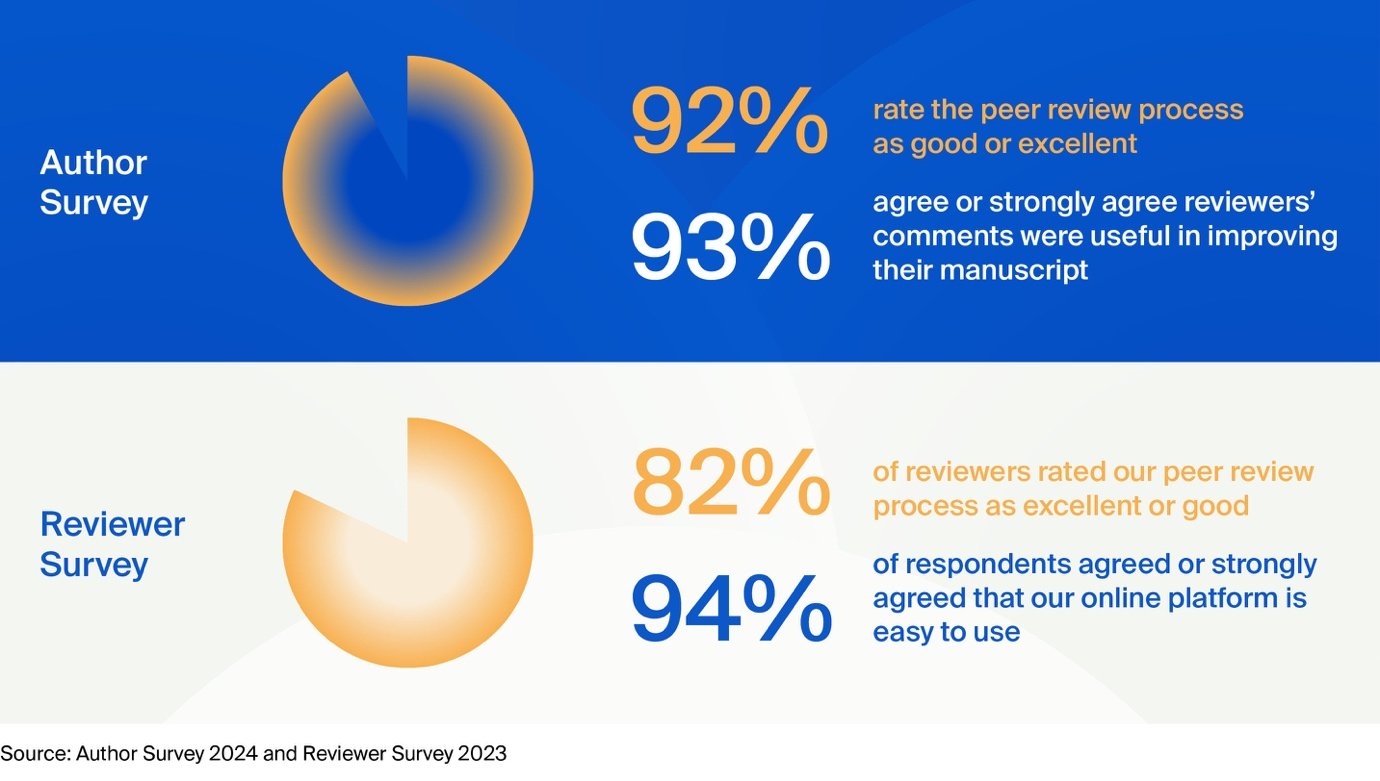
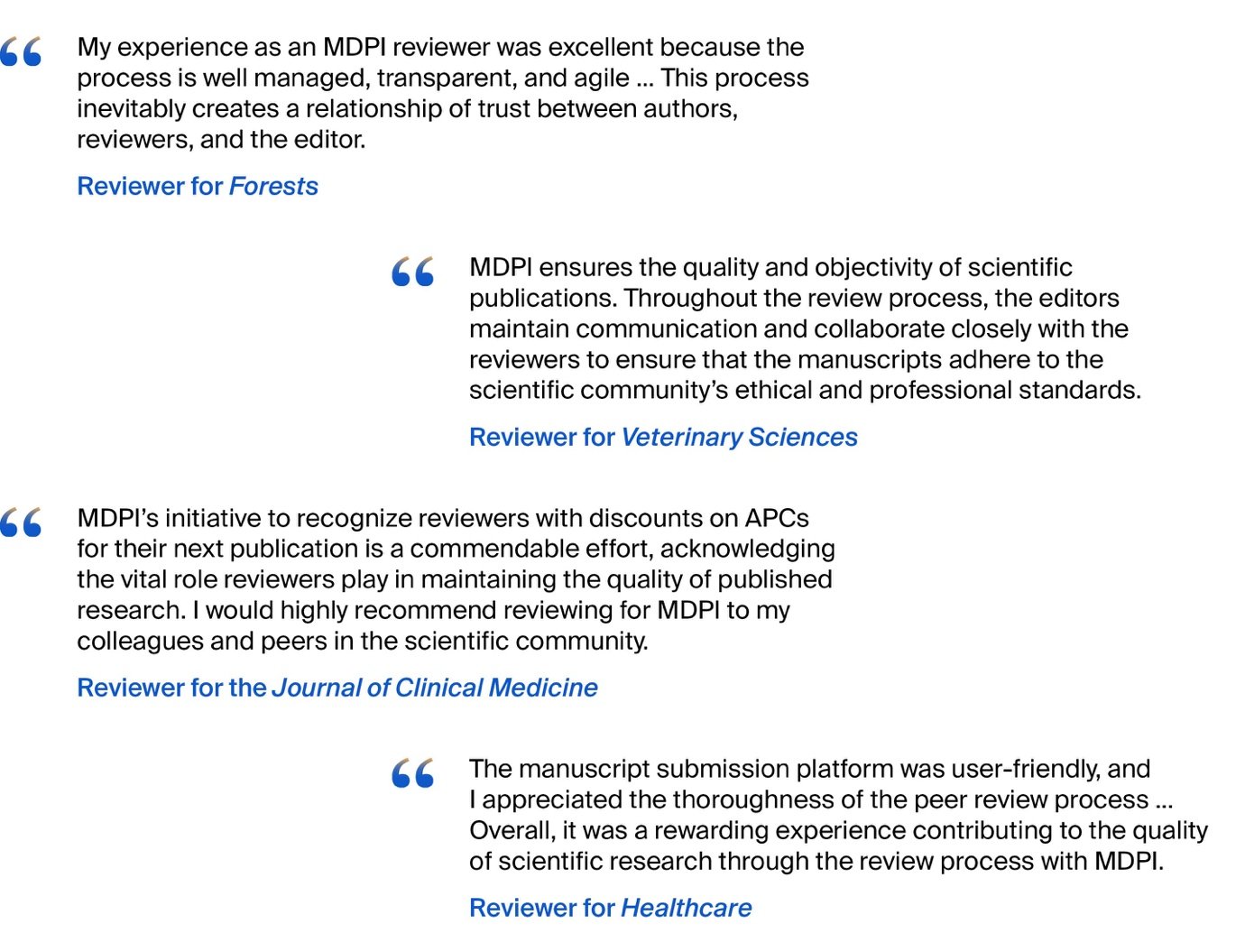
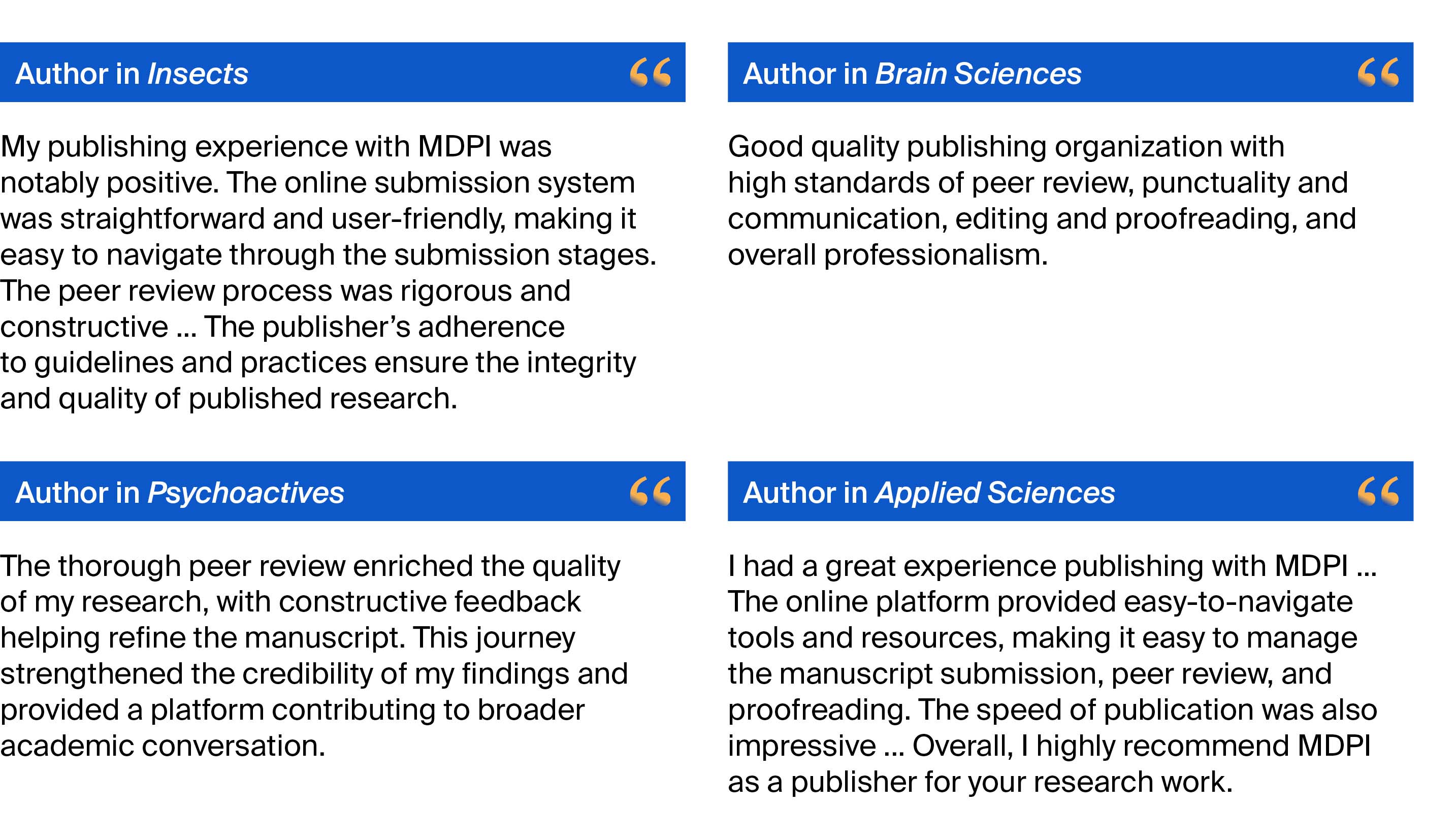
Coming Together for Science

ICM 2024 – Advances in Material Innovation
I am pleased to share that we held The 5th International Conference on Materials: Advances in Material Innovation (ICM 2024) in Basel, Switzerland this past 25–27 September.
This intimate event brought together leading scientists, researchers, and industry experts to exchange insights on recent advancements in materials characterization, processing, and manufacturing. Key focus areas included nanotechnology in material sciences and engineering, optical, electrical, and magnetic materials, soft, biological, and biomaterials, fibres, membranes, thin films, sensing materials, as well as materials and devices for energy and solar fuels. In addition, discussions featured the integration of AI and machine learning in materials research.
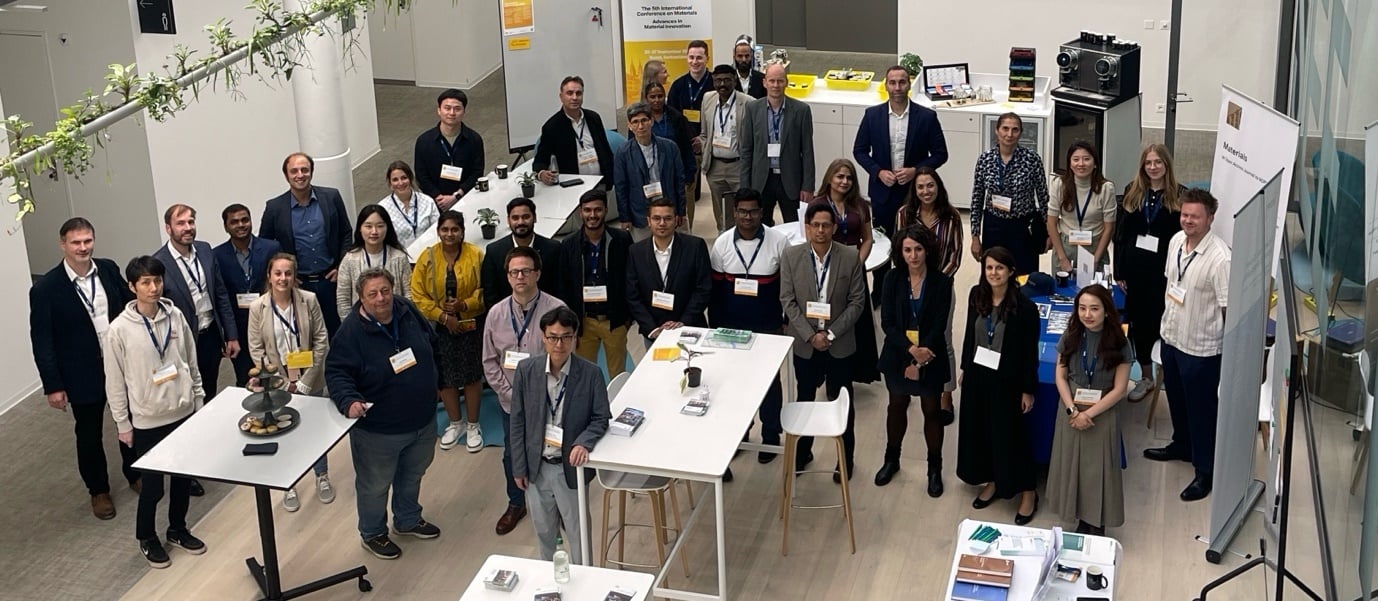
We received 90 abstract submissions. Over the course of the three-day event, 18 posters were displayed, and 34 talks were delivered, including three plenary speeches, seven invited talks, and 24 selected oral presentations.
A special thank-you to our partnering societies The Polish Membrane Society and The North American Thermal Analysis Society, as well as our sponsor, Nanomegas, for their support of the ICM conference. I am also pleased to share that we presented three awards, including the Best Presentation Award and two Best Poster Awards, recognizing the outstanding contributions of our participants.
Upcoming In-Person Event
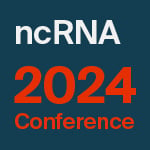
7–9 October 2024
Non-coding RNA World 2024: Exploring Mechanisms, Designing Medicines
Location: Basel, Switzerland
ncRNA 2024 will explore the latest advances in the field, covering topics from basic biology to medical and technological applications.
Find more upcoming MDPI events here.
Closing Thoughts
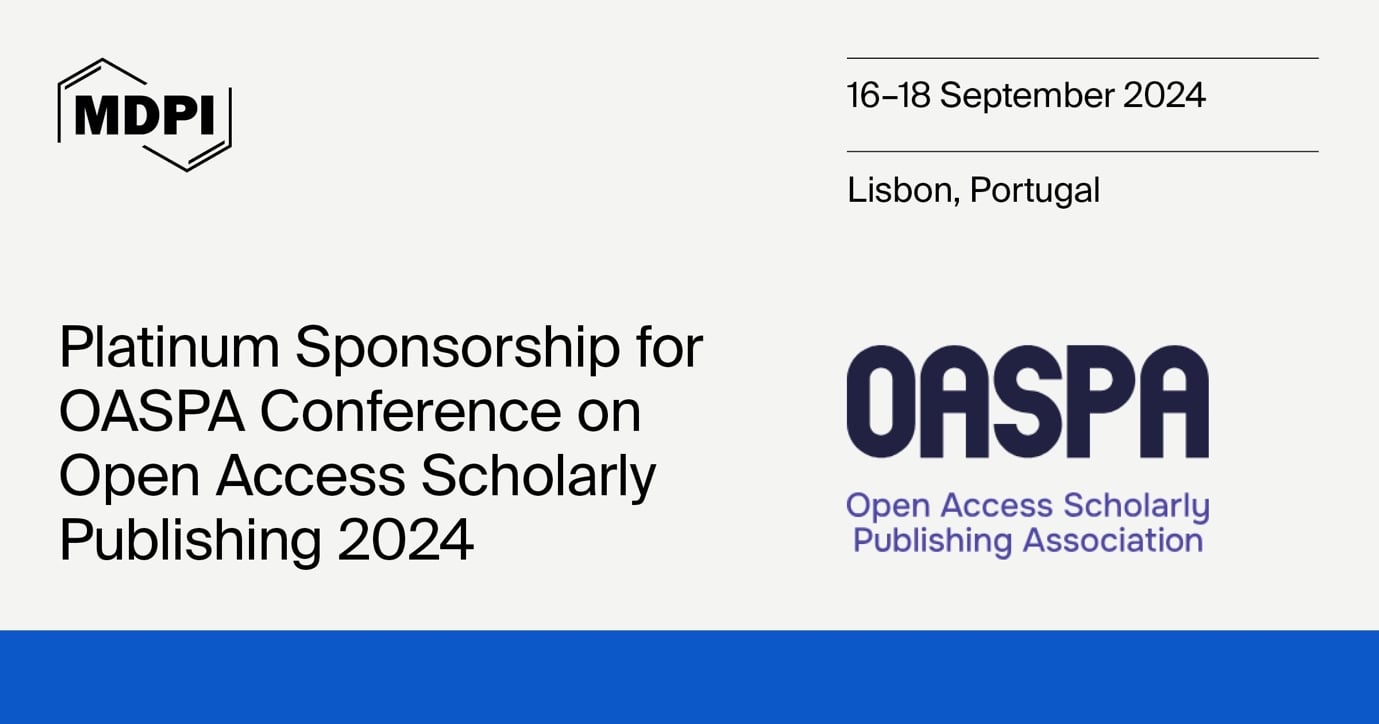
Reflections from OASPA 2024 Conference in Lisbon (16–18 September)
Amidst my September travels, I also had pleasure of attending the OASPA 2024 Conference in Lisbon from 16–18 September. It’s the first in-person Open Access Scholarly Publishing Association (OASPA) event in five years, and being in the sunny city of Lisbon made it even better! MDPI has long been a member of OASPA, and attending this conference gave us an opportunity to connect with other key members of the organization to see the latest developments in the OA movement.
“I believe that publishers have a lot to offer in terms of data and insights”
Main Themes from OASPA 2024
The main themes covered were equity and inclusivity, diamond OA, AI and openness, OA books, research integrity, and how OA can address broader societal challenges such as climate change. While it was great to see the latest developments in these areas, it was also clear that certain voices were missing, particularly those of major publishers. Although it’s not easy to incorporate every perspective, I believe that publishers, including MDPI, have a lot to offer in terms of data and insights. During the membership meeting, a few of us raised the point that large-scale publisher input could add value to these discussions.
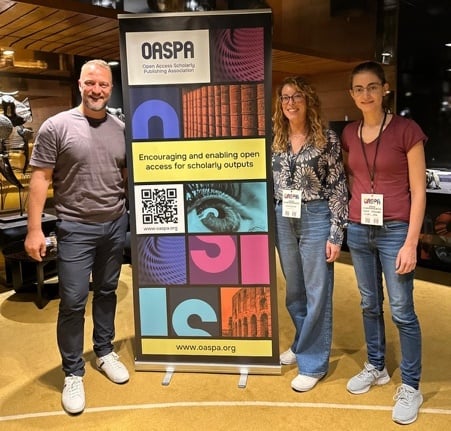
It’s important to participate in industry conferences such as OASPA in order to be part of the discussions and remain at the forefront of the OA movement.
It’s an opportunity to build meaningful relationships with organizations that share our commitment to OA.
While sponsorship is one way to show our support, it’s clear that being part of the conversation through participating in the OASPA groups and committee is what really makes a difference.
It took the last 20 years for more than 50% of the world's research to be published via open access. This provides a sobering reminder that flipping the remaining 50% will be a big challenge.
An important takeaway for me was that there is no "one-size-fits-all" solution for OA challenges: different regions and different stakeholders need different forms of support, whether it is infrastructure, funding, education, or policy, for example. I also enjoyed Rebecca Ross' presentation on how OA can drive action on climate. A few panellists shared the need for transparency in the peer-review process, advocating for open review reports, which is something we have been offering since 2014.
Speaking of openness, we are excited to celebrate Open Access Week 2024 with the scholarly community from 21–27 October. I look forward to sharing a recap of our activities in the next newsletter.
Chief Executive Officer
MDPI AG
30 September 2024
Meet Us at the Asia–Pacific Congress of Medical Virology 2024, 19–21 November 2024, Singapore

MDPI will be attending the Asia-Pacific Congress of Medical Virology 2024 held in Singapore from 19 to 21 November 2024. The Asia–Pacific Congress of Medical Virology (APCMV) is a triennial international meeting that focuses on diagnostics, public health, research and clinical virology, with emphasis on the Asia–Pacific region. The aim of this congress is to foster the collaboration and information sharing of the latest research in the field of virology pertaining to medically important viruses and treatments against them. Including the most recent COVID-19 pandemic, many emerging virus infections have been centred in the Asia–Pacific region, and the breaking down of boundaries between civilisation and wildlife only serves to accelerate that. Therefore, it is vital for countries in the region to develop a strong public health, diagnostic and research base to address these problems. Hence, the APCMV congress series was established to enable the review, sharing and discussion in each of these areas to form a strong foundation for the management of medically important viruses.
The following MDPI journals will be represented:
- Pathogens;
- Viruses;
- Antibiotics;
- TropicalMed;
- CIMB;
- Life;
- IJMS.
If you are planning to attend the conference, please visit our booth #A07. Our delegates look forward to meeting you in person and answering any questions that you may have. For more information about the conference, please visit the following website: https://apcmv.com/about-apcmv/.




